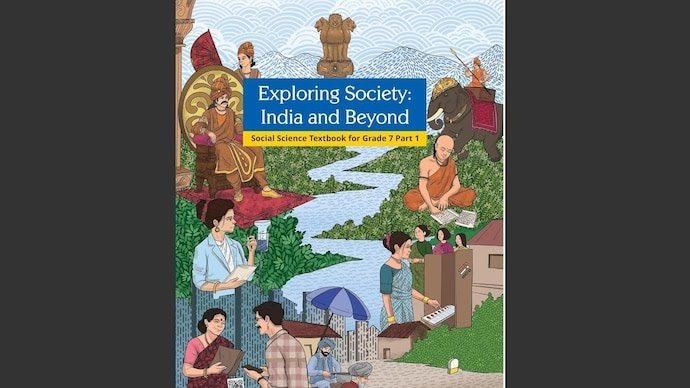The National Council of Educational Research and Training (NCERT) has rolled out significant revisions to the Class 7 curriculum for the 2025-26 academic year, in line with the National Education Policy (NEP) 2020 and the National Curriculum Framework for School Education (NCFSE) 2023.
A notable shift is observed in the Social Science textbook titled Exploring Society: India and Beyond, which introduces fresh chapters on Indian rulers and cultural themes. However, references to the Mughal Empire and the Delhi Sultanate have either been reduced or entirely removed. Previously detailed content on dynasties such as the Mamluks, Khaljis, Tughlaqs, and Lodis has been excluded, marking a significant change in how medieval Indian history is being taught.
While this textbook represents only the first part of the updated syllabus, CBSE officials have not yet clarified whether the omitted sections will feature in the second part expected later in the academic year.
In parallel, the English textbook Poorvi has undergone a literary transformation, now showcasing Indian voices in nine out of its 15 poems, stories, and essays. Esteemed contributors include Rabindranath Tagore, A.P.J. Abdul Kalam, and Ruskin Bond. This contrasts sharply with the earlier textbook Honeycomb, which featured just four Indian authors out of 17.
Other updates across the curriculum include new chapters on Indian dynasties, sacred geography, cultural heritage, and various government welfare schemes. These changes reflect a broader effort to prioritize Indian-centric narratives and align classroom learning with the goals of NEP 2020.
#NCERT2025 #NEP2020 #Class7Curriculum #IndianHistory #TextbookReform #CBSEUpdates #EducationPolicy #MughalHistory #DelhiSultanate #IndianAuthors #NCFSE2023


